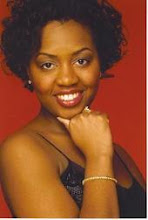I remember when I opened my first checking account. Everyone stressed the importance of balancing my checkbook. I heard it at the bank when they gave me the check register and showed me how to enter the date, then the name of the transaction and then how much was going in or coming out. Finally, I was instructed to use my math skills to add and subtract those amounts. A negative number was a sign of trouble. The lesson was further stressed by mother with every deposit to the account (I was only 16 at the time and she was making all of the deposits).
The reason I bring this up is because I have heard and noticed a lot of people having trouble balancing their checkbooks. It's not, well not always, because they can't add or subtract but because of all of the different types of transactions that we use our accounts for. Back then your only options to get money out of your account was to write a check or go to the bank. Even wire transfers were a complex process.
Today, we have automatic drafts, ATMs, debit transactions, on line bill pay and check writing. Unfortunately, those check registers have not kept up the times. Some people have duplicate checks but I find it hard to believe that you will only have one additional transaction to record between checks. The traditional check registers are usually kept with your check book but not with your debit card which causes some people to forget to record those debit transactions.
So what do you do? I have two systems that you can try. Hopefully, one will fit your situation or it may become a combination of the two. Either way, you have to find a system that works because banks don't mind covering an overdraft payment when they know they can charge more than $30 each time you make a 'mistake.'
Option 1: Keep a journal of your spending. I write down everything that I spend in a small notebook and code the transactions – whether it's cash, check, ATM or automatic draft. This helps to see where all of my money is going and not just the money in my account. At the end of the month, I sometimes face a rude awakening like one month I was going to gas station to buy coffee almost every morning for about $1.08 per day. Doing that everyday for a month was more than $20. I could have made my own coffee, bought that French vanilla creamer that I love, a package of paper cups and box of sweet and low for less than that.
Option 2: Keep a separate checking account for your bills and one for your personal spending which usually occurs with a debit card. If you know how much you spend on bills each month, you can set up an account with that much money each month and only use that account to write checks for household expenses. The second account can be the fun money. This is also helpful for people with budgeting problems because you aren't able to dip into the household money.
Your money matters and you need a solid system to help you keep track of it.
30 May 2009
Subscribe to:
Post Comments (Atom)

No comments:
Post a Comment